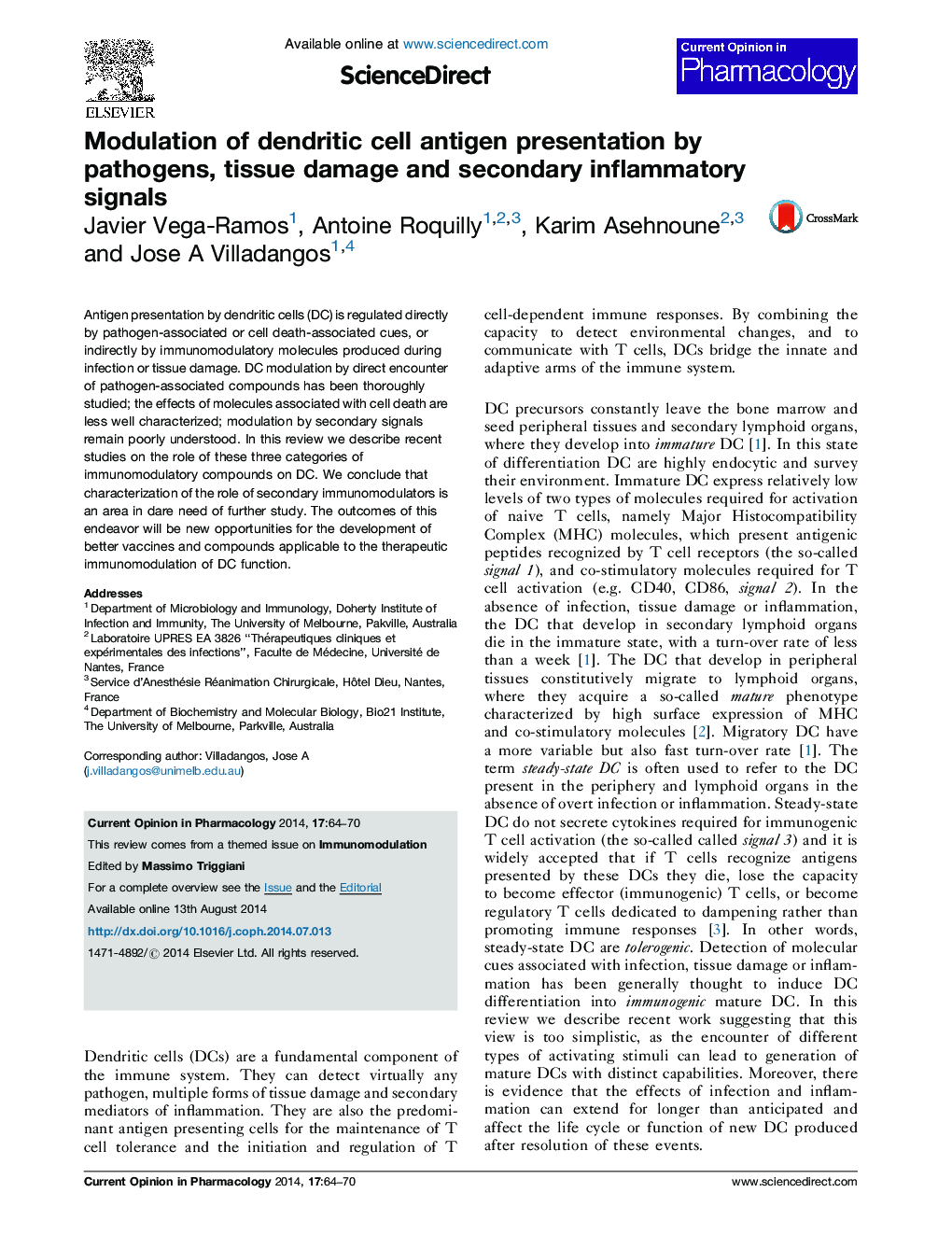| کد مقاله | کد نشریه | سال انتشار | مقاله انگلیسی | نسخه تمام متن |
|---|---|---|---|---|
| 2529892 | 1558131 | 2014 | 7 صفحه PDF | دانلود رایگان |
• Pathogen-associated and cell death-associated patterns directly activate dendritic cells (DC).
• Directly activated DC cannot present subsequently encountered antigens.
• Systemic direct activation of DC causes immunosuppression.
• DC can also be activated indirectly by secondary inflammatory stimuli.
• Direct and indirect modulators of DC interact in poorly understood fashion.
Antigen presentation by dendritic cells (DC) is regulated directly by pathogen-associated or cell death-associated cues, or indirectly by immunomodulatory molecules produced during infection or tissue damage. DC modulation by direct encounter of pathogen-associated compounds has been thoroughly studied; the effects of molecules associated with cell death are less well characterized; modulation by secondary signals remain poorly understood. In this review we describe recent studies on the role of these three categories of immunomodulatory compounds on DC. We conclude that characterization of the role of secondary immunomodulators is an area in dare need of further study. The outcomes of this endeavor will be new opportunities for the development of better vaccines and compounds applicable to the therapeutic immunomodulation of DC function.
Journal: Current Opinion in Pharmacology - Volume 17, August 2014, Pages 64–70
